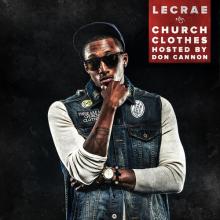calvinism

You might think that the people who most fundamentally believe in humanity’s fallen, sinful nature — Calvinists — would also be the most reticent to concentrate power in a small sect of humans.
But often, as Kristin Kobes Du Mez told me in our interview, Calvinists are one of the Christian groups on the front lines of movements where power is concentrated in singular leaders, singular expressions of Christianity, or singular heads-of-households. Kobes Du Mez, a historian at Calvin University , finds this baffling, but can’t deny that the movements are linked. As she sees it, Christian patriarchy, Christian nationalism, and anti-democracy movements are connected by their approach to power.
In a new documentary short, For Our Daughters, Kobes Du Mez and director Carl Byker address the connection of these movements through the stories of sexual abuse victim-advocates: Rachael Denhollander, Cait West, Christa Brown, and others tell the stories of how sexual abuse was allowed, ignored, or covered-up in their communities while analyzing what Christianity has to say about it.

As a post-evangelical, I have no interest in rehabilitating Calvin’s ideas about double predestination or his justification for the execution of Michael Servetus. Nonetheless, I’m unwilling to cast Calvin and his theological legacy in exclusively negative terms; I believe that confronting racial injustice today actually requires recuperating Calvin’s infamous doctrine of “total depravity,” or a spiritual condition staining humanity from birth. Doing so can help us better understand why both progressive and reactionary heirs to Calvinist thought fall short — and how we might work to transform our fallen world instead.

The position for which Betsy DeVos has been nominated — secretary of education — is one of the least powerful in the Cabinet, in terms of its budget and position in the line of succession to the presidency.
And yet, after a confirmation hearing in which she struggled to answer questions, some Senate offices have received more calls opposing DeVos than any other nominee.
All 48 Democratic senators and two Republicans — Sen. Lisa Murkowski and Sen. Susan Collins – opposed her when her nomination came to a vote on Feb. 7. Vice President Mike Pence cast a tie-breaking vote.

He’s been crowned the “new hip-hop king” and his newest album, “Anomaly,” topped iTunes and Amazon charts the day of its Sept. 9 release. He’s been invited to birthday parties for both Billy Graham and Michael Jordan and riffed on NBC’s “Tonight Show” with host Jimmy Fallon.
It’s the kind of mainstream success that has eluded most Christian rappers. Then again, some people are still trying to decide if hip-hop star Lecrae is a Christian rapper, or a rapper who happens to be Christian.
It depends who you ask, including Lecrae himself.
“God has also raised up lowly, kind of insignificant individuals to do miraculous and incredible things,” Lecrae, 34, said in an interview. “We’re the Gideons, we’re the Davids. Even Jesus himself made himself of no reputation. It’s when you can link it back to God doing it, I think that’s what he loves. He’s not a megalomaniac, he’s deserving of glory and honor, and to use individuals that demonstrate that it was him, and him alone, it accomplishes his mission and that’s success.”

Pulitzer-Prize winning author Marilynne Robinson draws a wide fan base that spans lovers of serious literature, including many conservative Christians. This fall, she will release “Lila,” a follow-up to her earlier novels “Gilead” (2004) and “Home” (2008) about a 1950s-era Iowa town that won her many accolades.
Robinson’s diverse fan base was described in The American Conservative as “Christian, not Conservative.” As the author noted, Robinson is far from holding up ideals put forward by the religious right. But that doesn’t stop conservative Christians from engaging with her writing.
Before giving an address at Union Theological Seminary this spring, Robinson spoke to Religion News Service about a variety of social issues. In the interview, Robinson explained why she thinks Christians are fearful, why she loves theologian John Calvin and whether she’ll join Twitter.

Nearly 35 years after conservatives launched a takeover of the Southern Baptist Convention, a new divide is emerging — this time over the teachings of 16th-century Reformer John Calvin — that threatens to upend the nation’s largest Protestant denomination.
When Southern Baptist delegates gather for their annual meeting next week in Houston, they’ll be presented with a report, “Truth, Trust, and Testimony in a Time of Tension,” that focuses on the growing popularity of Calvinism among Southern Baptist pastors and seminaries.
At stake are fundamental beliefs on who can be “saved,” the need for evangelism, and whether Baptists will retread familiar battlefields on the proper roles of men and women.

A common sentiment that’s expressed by both the left and the right on the issue of immigration reform is that immigrants need to prove their faithful adherence to the law and contribution to society before they’re put on some path to citizenship. It's redemption by works. It’s a reasonable means to verify their willingness to contribute to society. But a disconcerting irony dawned on me amid all this mutual give-and-take language we hear about immigrants; that is, many citizens themselves do not heed the same exhortation to contribute to their country today.
This is encouraged by the fact that citizenship today is identified entirely by a piece of paper, not by a way of life — by ink, not by deed. Although one’s citizenship technically includes a whole list of rights and duties, the fulfillment of these rights and duties is not a part of the identification process. This is understandable, as it’s very difficult to tell whether someone is trying to contribute to the state or merely trying to get what they can out of their legal privileges. I'm not out to start a Civil Reformation or something. But these thoughts have reminded me that the standard the Bible sets for Christian citizenship in heaven is something else entirely.
New Calvinists today have hammered home the doctrine of justification by faith through grace, not by works or legalistic moralism. Kingdom citizenship is claimed by faith in Christ. Got it.
Yet, Scripture is emphatic that Kingdom citizenship is not identified by faith alone, but also by works.

There is a line from a Gerard Manley Hopkins poem about the Virgin Mary that describes the baby Jesus as “God’s infinity, dwindled to infancy.” The line captures perfectly the beautiful but also shocking idea, central to Christianity, that the infinite God who created the universe also chose to descend, dwindle, become small, become helpless, become dependent on human beings.
Hopkins is right: the baby Jesus is not merely a sentimental or cute idea but is potentially radical, transformative, and controversial.

I’ve had a number of interesting discussions with various people lately about the notions of hell, salvation and who goes where. It’s a rhetorical exercise for the most part, since no one really knows. But there are plenty of real-life implications, particularly in the sphere of religion. For some, the understanding of what happens to us after we die is the prime mover in their day-to-day faith.
I know that the times when I resonate with more hard-line evangelical theology are few and far between, but in this case, I tend to resonate more closely with them than with my brothers and sisters of the Calvinist (also called Reformed Church) movement. For some not familiar with the differences, common Evangelical belief would suggest that God’s saving grace is available to all who seek it, and that the only thing standing between us and eternal salvation is us and our unwillingness to accept God’s perfect gift. In the Reformed Church, however (represented most prominently today by pastors like Mark Driscoll and John Piper), salvation is reserved for an elect few. The rest of creation will suffer the eternal wrath of God, period.